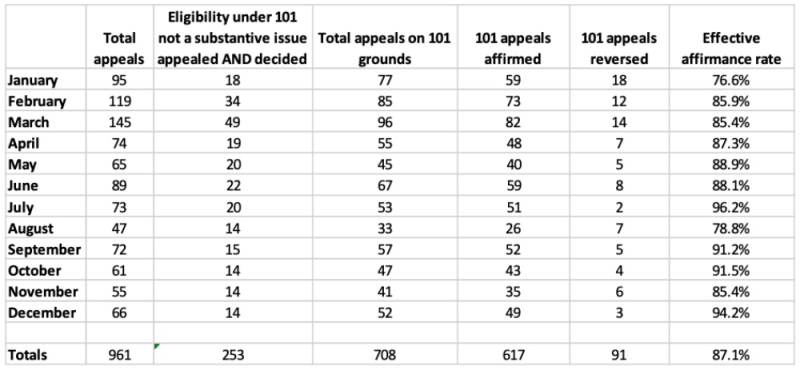USPTO Says Wands Still Controls Post-Amgen
“The Wands factors are probative of the essential inquiry in determining whether one must engage in more than a reasonable amount of experimentation.” – USPTO enablement guidelines
The U.S. Patent and Trademark Office (USPTO) published guidelines for examiners today on the topic of enablement in light of the Supreme Court’s May 2023 decision in Amgen v. Sanofi. The Office’s view seems to largely mesh with what our guest authors concluded earlier today—Amgen isn’t getting rid of In re Wands and—at the USPTO at least—the decision has seemingly maintained the status quo.
A USPTO alert sent late Tuesday confirmed that the guidelines “do not present a change in practice for USPTO personnel, who will continue to use the In re Wands factors to ascertain whether the amount of experimentation required to enable the full scope of the claimed invention is reasonable.”
According to the guidelines, the Amgen ruling, despite dealing with the unique area of antibodies/ biotechnology, applies across technology fields because it relied on precedent from cases covering a wide range of sectors. Essentially, determining enablement still turns on assessing whether the amount of experimentation required by the specification to make and use the invention is “reasonable”. In Amgen, the Court said it was not.
Although, as we have reported previously, Amgen provided “26 antibody examples and detailed instructions for generating additional antibodies within the genus—which covered some 400 pages and included a CD Rom of the x-ray crystallography coordinates of Amgen’s ‘anchor’ (or lead) antibodies 21B12 (Repatha) and 31H4,” the Supreme Court said it was insufficient to meet the enablement requirement. Instead, the decision said that “Amgen offers persons skilled in the art little more than advice to engage in ‘trial and error.’”
However, the decision did note that the specification may call for a “reasonable amount of experimentation,” and—although the Amgen opinion did not mention the case—the USPTO saidin the guidelines that “the Wands factors are probative of the essential inquiry in determining whether one must engage in more than a reasonable amount of experimentation.” In re Wands set forth eight factors for determining whether experimentation is “undue”. These factors were used by the USPTO prior to the Amgen decision and in the underlying U.S. Court of Appeals for the Federal Circuit ruling in Amgen v. Sanofi Aventisub and in post-Amgen enablement rulings, and therefore “will continue to be used to assess whether the experimentation required by the specification to make and use the entire scope of the claimed invention is reasonable,” said the guidelines. Furthermore, “Federal Circuit precedent applying the Wands factors prior to Amgen is still informative as to how the Wands factors should be analyzed in different situations.”
Reflecting on his analysis piece published with IPWatchdog today, Ryan Hiler of Taft Law noted the USPTO drew many of the same conclusions the authors did—however, the application outside of functional claims remains a gray area, as the guidelines don’t say anything explicitly about that. “While the guidelines are focusing on functional claiming cases, we still believe that our conclusion that Amgen’s ambit is not limited to functional claims is a reasonable one,” Hiler told IPWatchdog.
Eileen McDermott
Eileen McDermott is the Editor-in-Chief of IPWatchdog.com. Eileen is a veteran IP and legal journalist, and no stranger to the intellectual property world, having held editorial and managerial positions at […see more]







